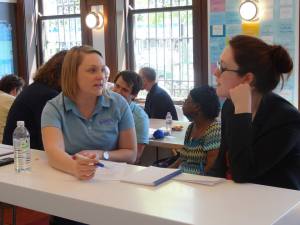 Most days, I bike to work. By bike, I mean the motorless kind. In addition to saving money on gas, reducing wear and tear on my car, and having a greener footprint (I now drive about 5,000 miles less per year), I’ve discovered my bike is also my personal time machine.
Most days, I bike to work. By bike, I mean the motorless kind. In addition to saving money on gas, reducing wear and tear on my car, and having a greener footprint (I now drive about 5,000 miles less per year), I’ve discovered my bike is also my personal time machine.
First, my bike saves me time.
Riding to work blends my commuting and workout time. By blending exercise and commuting, I actually get about an hour back in my day! How’s that for quantifiable impact!
Second, my bike gives me time.
Being on a bike twice a day gives me more time outside, feeling the sun (or rain) on my skin, smelling the grass, the trees, or farmers’ fields. I also hear birds and frogs that I can’t hear when I’m in a car. This outside time is precious to me.
If you practice mindfulness or other kinds of meditation, you know being attuned to your senses is important. Riding a bike like I do is a gold mine for the senses.
I also get more time to connect to others. On a bike, it’s easy to pull over and chat with anyone including neighbors, fellow bikers and even the crossing guard I see every day on my way to work.
Third, my bike itself is from another time.
Heavy, solid and with a smooth ride, my Reagan-era mountain bike is “more Harley-Davidson than Trek,” according to the guy who sold it to me.
 Finally, my bike takes me back in time.
Finally, my bike takes me back in time.
Bike riding is making me younger. Maybe not literally, but riding has changed my appetite to be more in line with a person half my age. On really challenging days, when the wind is strong or snow is on the ground, I get an awesome workout and lots of fresh air. On those days I feel like I’m 20 again.
And on those nights, I’m asleep in no time.
Dale Gavney is a Business Performance and Planning Administrator for American Family.
 For many people, getting an insurance policy is pretty straight-forward. You have something you need insured, you call an agent, he or she takes your application, calculates your payment, the company issues a policy and presto! You’re insured.
For many people, getting an insurance policy is pretty straight-forward. You have something you need insured, you call an agent, he or she takes your application, calculates your payment, the company issues a policy and presto! You’re insured.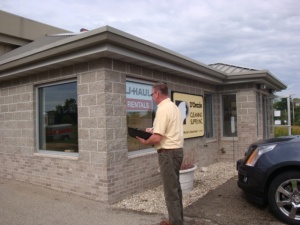 I’m one of 13 loss control specialists for American Family Insurance. My job is to go to a farm or commercial business we insure (or want to insure) and assess their current level of safety. After I inspect a property, I’ll go over my findings with our customer – or potential customer – to explain how they can reduce their potential for accidents, injury, and property damage.
I’m one of 13 loss control specialists for American Family Insurance. My job is to go to a farm or commercial business we insure (or want to insure) and assess their current level of safety. After I inspect a property, I’ll go over my findings with our customer – or potential customer – to explain how they can reduce their potential for accidents, injury, and property damage. 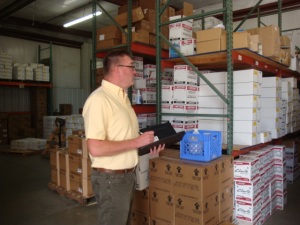 In some cases, I’ve seen unsafe equipment that presented a fire hazard. When I explained it to the prospective customer and told them everything in the building could be destroyed if changes weren’t made, (in one case, the building was filled with antique tractors!) they were very grateful since they never realized the risk was there.
In some cases, I’ve seen unsafe equipment that presented a fire hazard. When I explained it to the prospective customer and told them everything in the building could be destroyed if changes weren’t made, (in one case, the building was filled with antique tractors!) they were very grateful since they never realized the risk was there.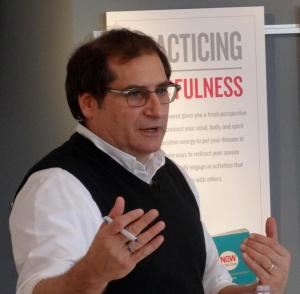 As part of the
As part of the 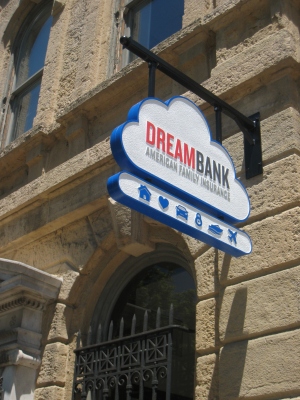 One of the main pieces of advice our recruiters offered was, “Be an advocate for yourself. The days of posting your resume and waiting for the calls to come in are over. It really is a different environment these days,” said Jeff.
One of the main pieces of advice our recruiters offered was, “Be an advocate for yourself. The days of posting your resume and waiting for the calls to come in are over. It really is a different environment these days,” said Jeff.